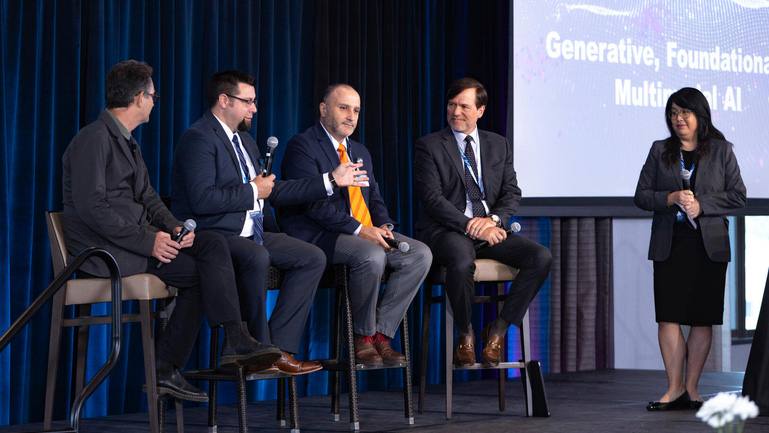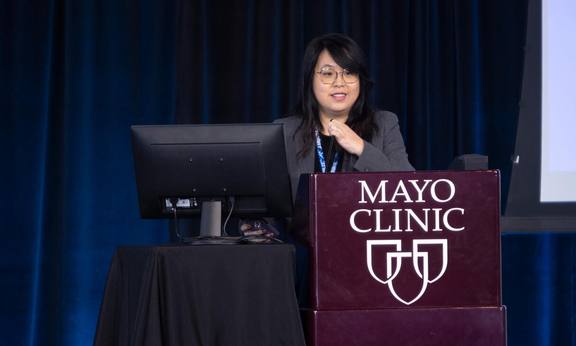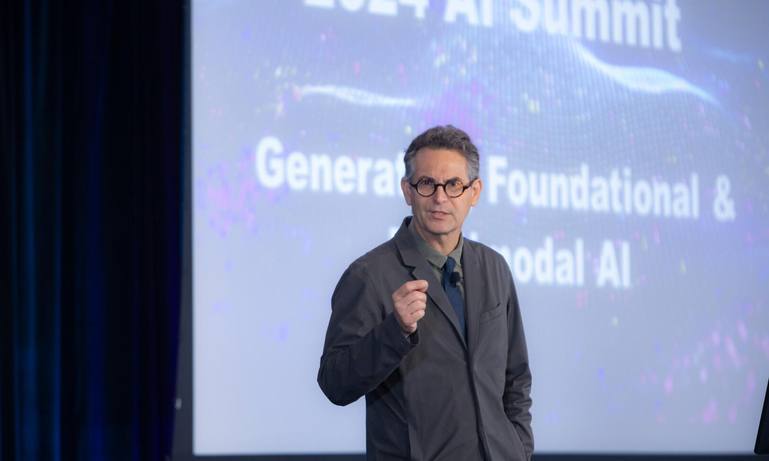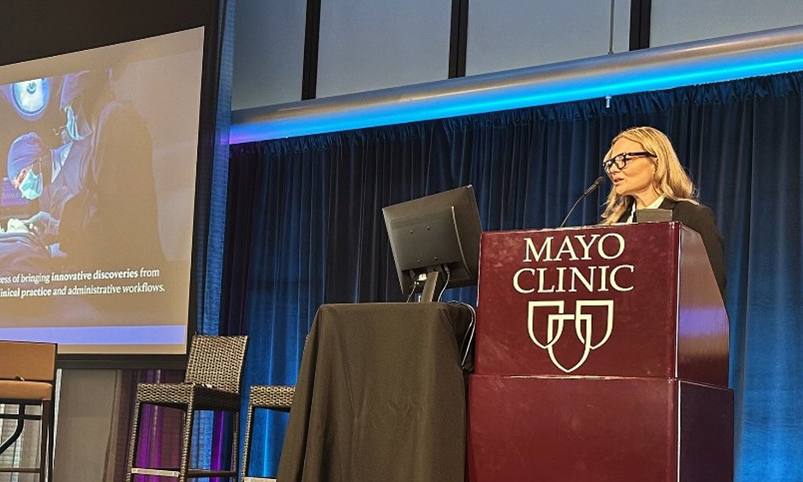-
Health & Wellness
Advancing AI in healthcare: Highlights from Mayo Clinic’s 2024 AI Summit

2024 marks a pivotal year for advancing artificial intelligence (AI) solutions in healthcare, requiring multidisciplinary teamwork and scientific rigor to bring these innovations to patient care.
These key takeaways emerged from Mayo Clinic's AI Summit, "Generative and Multimodal AI — Potentials and Challenges," held recently in Rochester. Nearly 300 attendees from Mayo Clinic and other institutions gathered in person and virtually to discuss the challenges and opportunities in applying AI technology to healthcare.

"As we are entering the era of artificial intelligence, AI has great potential and is already playing a critical role in revolutionizing healthcare and biomedicine," said Cui Tao, Ph.D., chair of Mayo Clinic's Department of Artificial Intelligence and Informatics, in her opening remarks. Dr. Tao is the Nancy Peretsman and Robert Scully Chair of AI and Informatics.
"Our role as a Research shield enables us to lead innovation and discovery efforts within the AI medicine ecosystem," adds Dr. Tao. "Through collaborative research, we aim to drive advancements to significantly enhance healthcare outcomes."
AI integrates text, radiology images, digital pathology slides, genomics and other sources of information to assist care teams in defining disease and making predictive analyses to support clinical decision-making. This "multimodal" AI supports healthcare teams, enhancing their ability to develop innovative solutions and improve patient care.

Developing models and bridging the AI translation gap
John Halamka, M.D., the Dwight and Dian Diercks President of Mayo Clinic Platform and Michael D. Brennan, M.D., President's Strategic Initiative Professor, was a keynote speaker. He emphasized the need for AI solutions to address global healthcare challenges over the next 20 years.
"Culturally, I think we have an imperative to build these new solutions," he said, noting lower birthrates, higher longevity and higher demand for healthcare in many nations. Automation and AI, he explained, can be part of those solutions, enabling healthcare that is more proactive, less costly, less invasive and more focused on wellness and cures.
To create solutions that benefit global populations, AI developers need access to curated, de-identified data with depth, breadth and heterogeneity, said Dr. Halamka.
Mayo Clinic hosts the largest curated, de-identified dataset in the world, he said, representing 32.5 million patients and growing. Companies such as those participating in the Mayo Clinic Platform's Accelerator program can leverage this data within a secure cloud environment to develop AI models.
Once developed, these models must be validated, approved by regulatory bodies and implemented so that they are easy for clinicians to use.
"Handing a data model and an AI model to a physician is not going to get its use and impact. It has to be fully integrated into their workflow," Dr. Halamka said. "It needs to be just-in-time, there offering appropriate advice without additional effort."

Getting to patients more quickly
Other headline speakers were Shauna Overgaard, Ph.D., senior director of AI Strategy and Frameworks, and co-director of the AI Validation and Stewardship Research Program at Mayo Clinic; Thomas Fuchs, D.Sc., dean of Artificial Intelligence and Human Health at the Icahn School of Medicine at Mount Sinai; Anant Madabhushi, Ph.D., executive director for the Emory University Empathetic AI for Health Institute; and Hoifung Poon, general manager at Microsoft Health Futures.
In her keynote, Dr. Overgaard discussed the "AI translation gap" between proof of concept and clinical implementation. The estimated time for translating a basic science discovery to clinical practice is 17 years, she noted. "We know that as we work toward innovation, we absolutely cannot wait 17 years."
Translating AI solutions into patient care involves overcoming challenges such as gaining clinician trust, ensuring reliability through continuous scientific validation, securing payer approval, and meeting regulatory requirements. These efforts ensure that AI tools efficiently augment and enhance healthcare professionals' expertise and patient care practices.
"Part of our work is identifying potential barriers to AI translation and then working together to close those barriers as well as streamline innovation," she said. This will require scientific rigor and multidisciplinary teamwork. Dr. Overgaard said that a solid translational process should enable stakeholders by addressing transparency, reproducibility, ethics and effectiveness. The AI Summit was hosted by the Department of Artificial Intelligence and Informatics. Hamid Tizhoosh, Ph.D., Artificial Intelligence and Informatics, served as chair of the AI Summit
Related Articles







